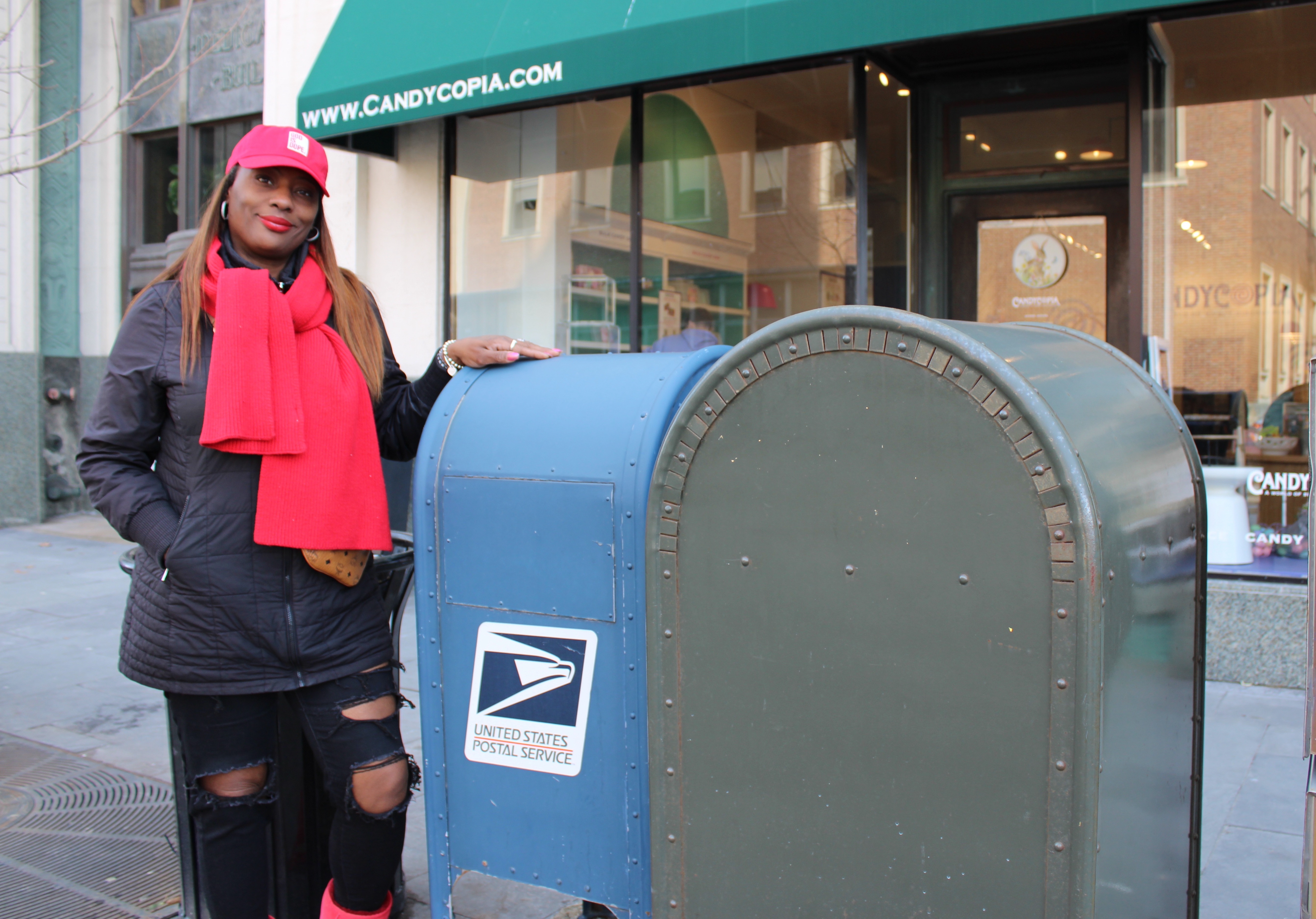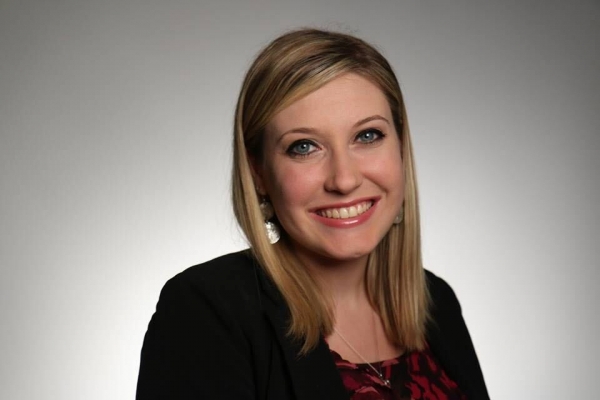Alexandria Jacobson wins April Sidney for Shining Light on Epidemic of Violence Against Mail Carriers
Alexandria Jacobson of Raw Story wins the April Sidney Award for “Letter carriers face bullets and beatings while postal service sidelines police,” a deeply reported feature that shines a spotlight on a rising tide of attacks on letter carriers.
Veteran letter carrier Khalalisa Norris was robbed at gunpoint by two men on an Austin street in early 2023. Her assailants demanded the universal keys that unlock the blue boxes that dot street corners across the country and threatened to shoot her in the back if she ran. One set of these keys can open multiple communal mailboxes enabling thieves to steal packages, credit cards, checks, cash and personal information. An expert told Raw Story that $100 million dollars worth of checks are stolen every month. The follow-on costs to taxpayers go far beyond lost packages, as stolen documents are used to fraudulently apply for benefits and to commit identity theft.
Letter carrier robberies surged 543 percent between 2019 and 2022, according to a government report. In 2022, a mail carrier in Milwaukee was shot and killed in an apparent robbery.
Letter carriers were once considered untouchable because they were government employees well-protected by postal police officers who patrolled alongside them to deter theft. However, in 2020, the Postal Service quietly pulled the officers off the street, limiting them to postal properties. The union and the Postal Service have been embroiled in a 4-year dispute about this and there are currently three bills in Congress that are pushing to restore postal police officers’ off-property duties.
“Jacobson’s meticulous reporting casts a light on the risks faced by letter carriers and the official indifference to their wellbeing on the job,” said Sidney judge Lindsay Beyerstein. “This story makes it clear how the security of letter carriers affects not only the workers involved but all of us in terms of the scale of thefts and fraud.”
Alexandria Jacobson is a Chicago-based investigative reporter at Raw Story, where she focuses on covering money in politics, electoral politics and government accountability. She previously worked as a multimedia reporter and journalism instructor in Chicago, with her work published by numerous national and local outlets, including ABC News, the Chicago Sun-Times, Chicago Tribune and The Chicago Reporter.

Backstory
Q: How did you become interested in the safety of mail carriers?
A: One of the issues we routinely cover at Raw Story is how criminals are increasingly stealing from political campaigns and committees. A postal employee saw one of our stories about how some members of Congress had sizable checks stolen from the mail, and he essentially told us we didn’t know the half of the issue.
Not only are these types of thefts occurring on a massive scale (to the tune of $100 million per month in check fraud coming mostly from stolen mail), but also thieves are often cashing in by violently robbing letter carriers. I think everyone can agree that letter carriers, who serve the entire country six days a week, deserve to be safe in their jobs. One particular story I heard from a letter carrier Khalalisa Norris — who witnessed a murder and had guns drawn in her face on the job — was particularly distressing.
It made me ask: How did we get to a point where criminals are brazen enough to rob federal government employees? This ultimately led me down a months-long path of document digging and interviewing anyone who could tell me about what it’s like to work for the Postal Service today. The answer primarily turned out to be a perfect storm of circumstances where criminals realized they were facing fewer consequences (declining arrest and conviction rates) and less police presence protecting letter carriers. It doesn’t help that mail carriers possess antiquated keys that open numerous mailboxes in a given ZIP code — an easy, attractive target for would-be thieves.
Q: Robberies of letter carriers rose by over 500% between 2019 and 2022, what accounts for this dramatic increase?
A: Many sources tell me, and the numbers show, that when the Postal Inspection Service (the law enforcement arm of the Postal Service) determined in 2020 that postal police officers could no longer patrol or stop crime on the streets where letter carriers deliver, that correlated with the dramatic spike in robberies. Postal police officers are uniformed, armed law enforcement officers who used to be able to patrol high-crime areas while letter carriers deliver on their routes. They drove marked cars and could stop a crime in action or just serve as a visible deterrent to criminals who might rob a letter carrier. Now, postal police officers can only be on postal property like post offices or distribution centers.
Q: Am I understanding correctly that letter carriers used to have their own uniformed police officers to protect them? How and why did that come to an end?
A: Yes, the Postal Service is one of dozens of federal agencies with its own uniformed, armed police force. They have been utilized since the 1970s when there were more than 2,600 across the country. Now there are 450 who can only work on Postal Service properties. The Postal Service and Postal Police Officers Association union have been in a four-year legal battle since the Postal Inspection Service decreed in 2020 that postal police officers could no longer patrol the streets. The Postal Service said they curtailed the postal police officers’ off-property responsibilities to prevent liability, but the postal police officers argue that they’re not doing any good being off the streets in the midst of a crime wave attacking letter carriers.
Q: Can you give us an overview of your approach to reporting this story? Were any documents or interviews particularly revealing?
A: I chipped away at this story over the course of four months. In general, postal employees are discouraged from talking to the media. It took a lot of relationship building and trust to get folks to talk to me, but that’s the heart of this story, hearing directly from people about what it’s like to work for the Postal Service right now. Khalalisa Norris was particularly brave in sharing her experience of pretty much what the worst of this crime issue looks like. As I was building the human element of the story, I was simultaneously hunting down and analyzing documents and data to reinforce the first-hand accounts of this crime wave. Many of the documents were hiding in plain sight but took some digging to find the story within the numbers that the government publicly shared.
Q: Did anything unexpected happen while you were reporting this story?
A: While I was reporting this story, legal developments would surprisingly pop up. An arbitrator issued an opinion in the union’s lawsuit against the Postal Service, and a class action lawsuit was filed by postal police officers against Postmaster General Louis DeJoy. Oh, and legislators introduced a new bill pushing for better protection of letter carriers less than a week before I published. I was updating and fact checking constantly until we hit publish.
Q: Every successful investigation helps you grow as a reporter. What did you learn from this project that you will carry forward to your next assignment?
A: When you think you’re done, make one more call. By the end of February, I had pulled together enough research and interviews to finish the story. Any other sources were just icing on the cake and extra work as I was trying to pare down massive amounts of notes and documents. But, I’m glad I reached out to a few extra names that came up in my reporting because they further backed up the evidence I gathered and provided even more first-hand information about the issue.


